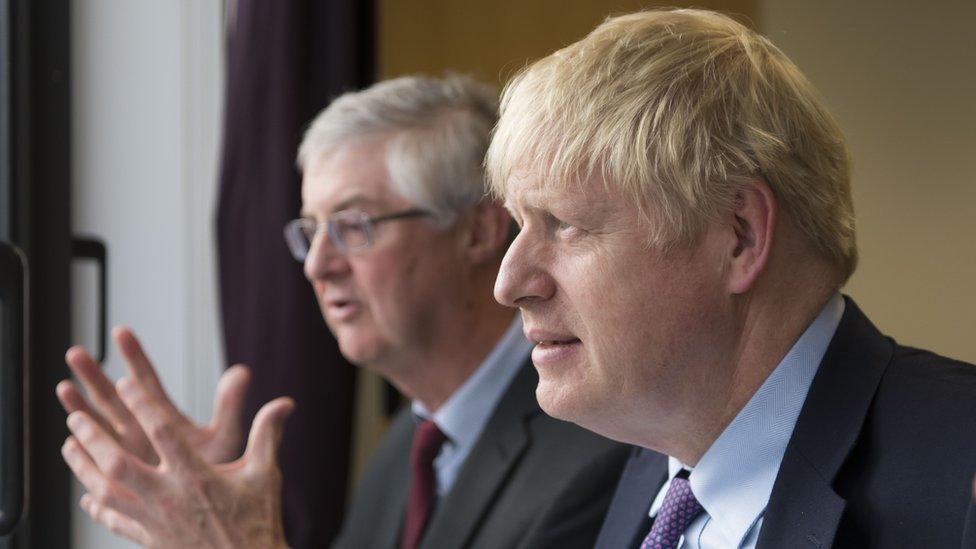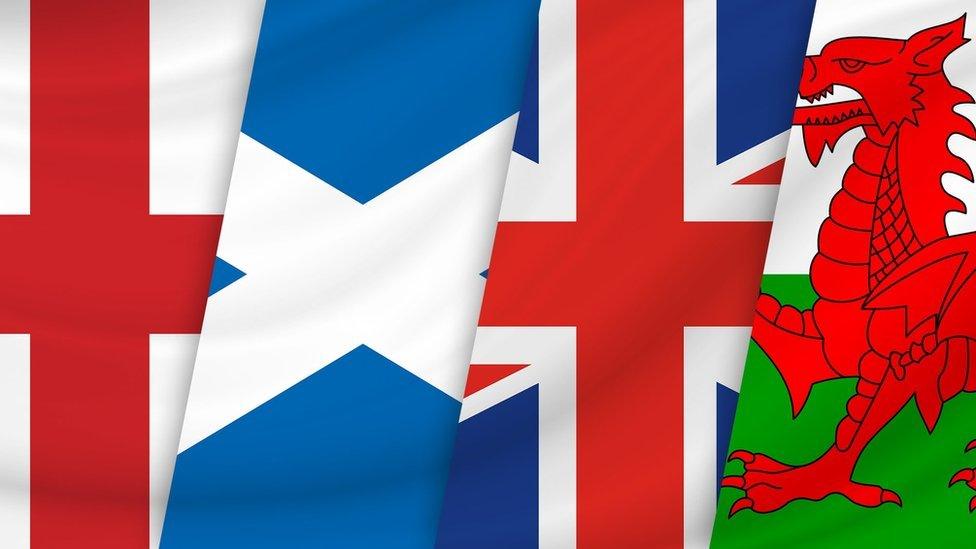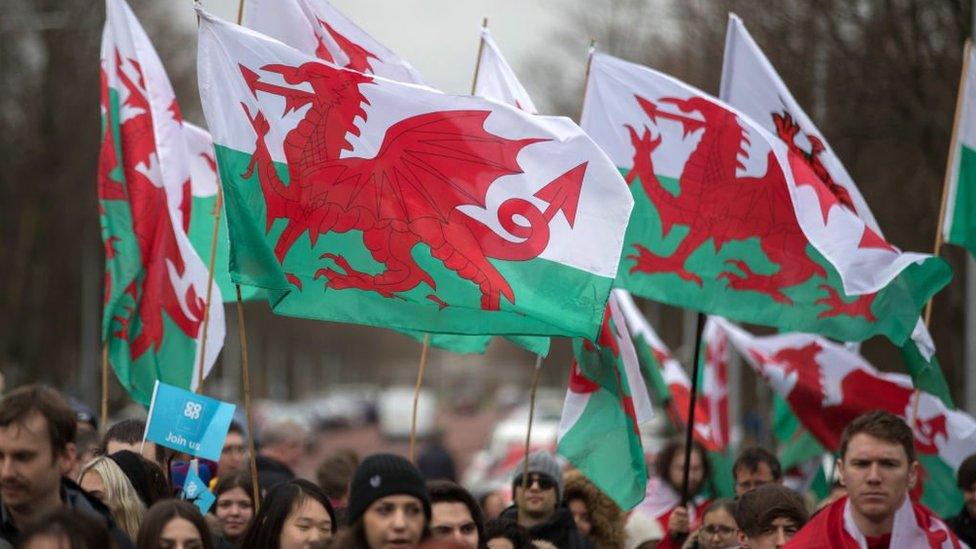Covid: Boris Johnson is awful, says Mark Drakeford
- Published
Mark Drakeford was filmed making the comments after a Cobra meeting last year
The first minister of Wales said the prime minister "really, really is awful" after a meeting with Boris Johnson last year.
Mark Drakeford's comments featured in an S4C documentary, which filmed his response to the Covid pandemic.
He suggested he felt a "sense of despair" following the Cobra meeting where a lorry travel ban in France was discussed.
The UK government said it has confronted the virus as "one UK".
Sunday night's broadcast also shows the Welsh Government cabinet was split last year when it decided to go it alone by only allowing two households to meet at Christmas.
France banned lorry traffic from Britain last December amid concern over a new variant of the virus found in the UK.
On the call, Mr Johnson can be heard to say he wants to "urgently look at the implications of the travel bans that some of our European friends have imposed".
France later eased the measures after an agreement to have lorry drivers tested. Travel bans were also implemented by other nations.
The programme cuts away from most of the meeting, saying it cannot record it for security reasons.

Mark Drakeford and Boris Johnson met shortly after Mr Johnson became prime minister in 2019
But Mr Drakeford is then heard to say: "Dear me, he really, really is awful.
"Imagine that some deadly new variant of the virus had been discovered in France and they were trying to persuade us that there was no need to take any action to stop French lorry drivers from driving across the continent."
When asked by an adviser whether he wanted any minutes from the meeting, Mr Drakeford said: "No, I don't think there is anything at all, other than wringing our hands, a sense of despair."
Earlier in the programme, he said he and the PM were "very different people".
'Tackle pandemic as one UK'
They had both studied Latin "but it's hard to find anything else that's common between us as people", he added.
"The world through Boris Johnson's eyes is so different to the world that people in Wales see. It's difficult sometimes to understand where he's coming from and why he's doing what he's doing."
In response, a UK government spokesman said: "Now more than ever, the people of the United Kingdom want to see all parts of the country working together to protect lives and livelihoods.
"We have confronted this virus as one UK, working closely with the devolved administrations, including the Welsh Government. This will continue as we move to build back better together."
Welsh Conservative Senedd leader Andrew RT Davies said: "This type of rhetoric might play well with the nationalists ahead of Senedd coalition talks, but I'm not sure this is a good look for Labour's first minister."
"While the first minister might not like the rosette on the prime minister's lapel, he should respect the office."

Wales went its own way over Christmas get-togethers
The documentary shows the decision-making behind the Welsh Government's move to allow only two households to mix over Christmas.
It was due to be three, under the four nations' agreement, but Mr Drakeford changed the policy in Wales at a press conference in December.
When announced, it was unclear if it would be guidance or an enforceable law, but the programme shows the first minister initially supported doing the former.
Appearing to speak about the media, the first minister said: "Let's hope nobody is bright enough to ask, 'is that 'should' as in regulation or 'should' as in advice'?"
"They are asking already," an official said, to which Mr Drakeford swears in response.
The documentary goes on to show the proceedings of a later cabinet meeting, where ministers were split on whether to make the rule legally enforceable.
Four of those present - including Health Minister Vaughan Gething - supported making it law, while four others were opposed.
"Our rates are materially different," Mr Gething said at the time, "and at such a high level that I think we need to change the law".
Jane Hutt and Dafydd Elis-Thomas were among those who wanted to stick with the four nations' approach.
At the end of the discussion, Mr Drakeford decided to go ahead putting the guidance into regulations, although he said he did so reluctantly.
Firebreak lockdown
The film also shows that the first minister felt it would have been unaffordable if last year's short autumn lockdown had gone on for three weeks.
Known as the firebreak, the two week break began at the end of October and lasted into November.
Lee Waters, deputy minister for the economy, is shown asking colleagues to consider a three-week firebreak.
"I simply don't think a three-week firebreak is affordable, let alone sustainable in the public mind," Mr Drakeford said.
"A three working week firebreak is a completely different proposition in terms of its impact on businesses and our ability to be able to support those businesses."
Related topics
- Published14 January 2021

- Published7 March 2021
